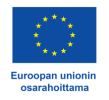Development of the innovation process
Bringing know-how and services to help companies' product development

Goal
KIRA CIRCULARIS project opens up the research environments and laboratory platforms of six universities of applied sciences (TAMK, Metropolia, XAMK, Karelia, Oulu and Turku) to serve SMEs in promoting the circular economy. The project is looking for a wide impact around numerous circular economy themes and
with the help of a wide national cooperation network. The points of view are material circulation, building parts that can be reused or manufactured, and building designed for disassembly. The project creates a new kind of ecosystem that supports the circular economy of companies and with cooperation we aim to develop new products,
implementation of services and innovations.
TAMK's main focus in the project is the innovation learning process. The goal is to connect the learning process required by innovations to the ability of laboratory testing to produce information.
Paradigm change from linear economy product development to circular economy service market
requires a lot of innovation and new services for the construction industry, and it requires innovation processes
development as joint development activities of companies.
TAMK's role in cooperation with the laboratory activities is to see the prototypes and the testing activities to demonstrate the validity as part of the learning process related to the creation of innovations, and to develop a process that connects the parties in cooperation with companies and other stakeholders, in which the value network that connects products and services is developed. Such value networks are needed so that circular economy solutions can compete on the market with linear economy solution models, as individual products or changes in operating methods are often too expensive to succeed in the competition.
Funding source
Contact persons
pyry.harsunen [at] tuni.fi
